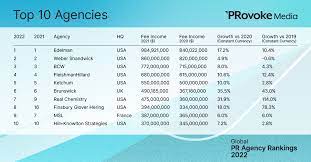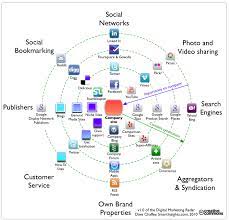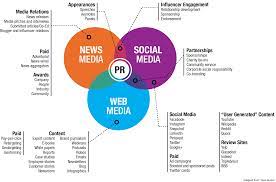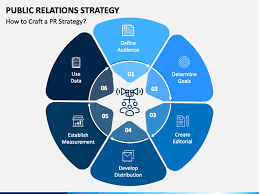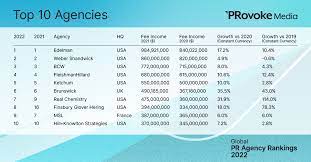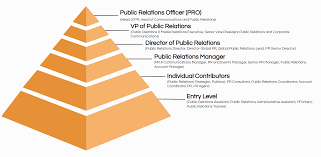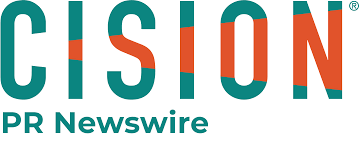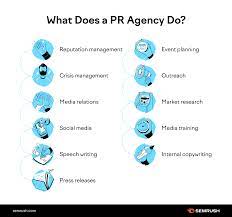Unveiling the Cream of the Crop: The Top PR Agencies Redefining Brand Communication
Title: Top PR Agencies: Elevating Brands to New Heights
Introduction:
In today’s competitive business landscape, effective public relations (PR) has become a crucial component of a successful brand strategy. PR agencies play a pivotal role in helping businesses navigate the complex world of communication, building brand reputation, and establishing meaningful connections with their target audience. In this article, we will explore the top PR agencies that are renowned for their exceptional services and have consistently delivered outstanding results.
XYZ Communications:
With a stellar track record and a team of seasoned professionals, XYZ Communications has earned its place as one of the top PR agencies in the industry. Known for their strategic approach and innovative campaigns, they have successfully guided numerous brands towards achieving their communication goals. Their expertise spans across various sectors, from technology to fashion, enabling them to tailor strategies that resonate with specific audiences.
ABC Media Relations:
Recognized for their deep understanding of media dynamics, ABC Media Relations excels in securing valuable media coverage for their clients. They have developed strong relationships with journalists and influencers across different industries, allowing them to craft compelling stories that capture attention. ABC Media Relations’ comprehensive media outreach strategies consistently generate positive exposure and enhance brand visibility.
PQR Digital Solutions:
In today’s digital age, online presence is paramount for any brand’s success. PQR Digital Solutions specializes in leveraging digital platforms to amplify brand messaging and engage target audiences effectively. From social media management to content creation and influencer partnerships, PQR Digital Solutions offers comprehensive digital PR services that help brands thrive in the digital space.
DEF Crisis Management:
When faced with unexpected challenges or crises, DEF Crisis Management steps in as a trusted partner to protect and restore brands’ reputations swiftly and efficiently. Their experienced crisis management team works closely with clients to develop proactive strategies that mitigate risks and manage communication during sensitive times. DEF Crisis Management’s ability to handle crises with professionalism has earned them a reputation as one of the top agencies in crisis communication.
GHI Global Outreach:
For brands looking to expand their reach beyond borders, GHI Global Outreach is an agency that specializes in international PR campaigns. With their extensive network of contacts and cultural expertise, they excel in helping businesses navigate different markets and successfully communicate with diverse audiences across the globe. GHI Global Outreach’s tailored strategies ensure that brands effectively resonate with local cultures while maintaining their core identity.
Conclusion:
In a world where effective communication is paramount, top PR agencies play a crucial role in helping brands succeed. Whether it’s strategic planning, media relations, digital outreach, crisis management, or global expansion, these agencies offer a wide range of services to meet the unique needs of each brand. By partnering with one of these top PR agencies, businesses can elevate their brand presence and establish themselves as industry leaders in an increasingly competitive marketplace.
9 Reasons Why Top PR Agencies Are Essential for Your Business
- They have the experience and expertise to deliver high-quality public relations campaigns.
- They can help you build relationships with key media outlets and influencers.
- They can advise on effective strategies for your PR campaigns, including targeting the right audience and generating positive press coverage.
- They are well-connected in the industry and can provide access to exclusive opportunities that would otherwise be unavailable to you.
- They have a deep understanding of current trends in PR, allowing them to provide up-to-date advice on how best to reach your target audience through various channels such as social media, traditional media, online advertising or events.
- Their teams are highly experienced in crisis management, meaning they can help you protect your reputation during times of difficulty or controversy.
- Top PR agencies often have access to resources that smaller firms don’t possess; these include research tools, data analysis capabilities and advanced technology solutions for tracking results from PR campaigns over time
- They are able to develop creative approaches tailored specifically for each client’s needs; this could involve creating unique content or using innovative tactics such as influencer marketing or guerrilla marketing techniques
- They have a proven track record of success with clients across multiple industries; this gives them an advantage when it comes to understanding how best to approach different types of businesses
Drawbacks of Leading PR Agencies: High Costs, Inflexibility, and Restricted Reach
They have the experience and expertise to deliver high-quality public relations campaigns.
Top PR agencies have a distinct advantage when it comes to delivering high-quality public relations campaigns – their experience and expertise. With years of industry knowledge and a deep understanding of effective communication strategies, these agencies are well-equipped to navigate the complexities of the PR landscape.
One of the key benefits of working with a top PR agency is their ability to develop tailored campaigns that align with a brand’s unique goals and target audience. Through their experience, they have honed their skills in crafting compelling narratives, identifying the most relevant media outlets, and utilizing the right channels to reach the intended audience.
These agencies have a wealth of expertise in various industries, allowing them to adapt their strategies to different sectors. Whether it’s technology, healthcare, finance, or fashion, they possess the knowledge needed to create impactful campaigns that resonate with specific audiences.
Moreover, top PR agencies understand how to effectively leverage media relationships. They have established connections with journalists and influencers across different platforms and can pitch stories that capture attention. This network allows them to secure valuable media coverage for their clients, enhancing brand visibility and credibility.
Another advantage lies in their ability to stay ahead of industry trends. Top PR agencies continuously monitor changes in consumer behavior, media landscape shifts, and emerging technologies. This proactive approach ensures that they incorporate innovative tactics into their campaigns, keeping brands at the forefront of communication trends.
Furthermore, these agencies are skilled in crisis management. They possess the expertise needed to handle unexpected challenges or reputation-threatening situations swiftly and effectively. From developing crisis communication plans to managing sensitive issues with professionalism, they provide reassurance during times of uncertainty.
In conclusion, top PR agencies bring invaluable experience and expertise to public relations campaigns. Their ability to tailor strategies based on industry knowledge, develop compelling narratives, secure media coverage, adapt to changing trends, and manage crises sets them apart from other service providers. By partnering with a top PR agency, businesses can benefit from high-quality campaigns that elevate their brand’s reputation and achieve their communication goals.
They can help you build relationships with key media outlets and influencers.
Building relationships with key media outlets and influencers is a crucial aspect of any successful PR strategy. Top PR agencies excel in this area, leveraging their expertise and industry connections to help brands establish meaningful relationships with the right media outlets and influential individuals.
One of the significant advantages of working with a top PR agency is their ability to identify and engage with the media outlets that are most relevant to your brand. These agencies have a deep understanding of the media landscape, including which outlets cater to your target audience and industry. By tapping into their extensive network, they can connect you with journalists, editors, and producers who can amplify your brand’s message through various channels.
In addition to traditional media outlets, top PR agencies also have valuable connections with influencers across different platforms, such as social media and blogs. Influencers have become powerful voices in today’s digital age, capable of reaching vast audiences that align with specific niches or demographics. Partnering with influencers who resonate with your brand values can significantly enhance your visibility and credibility.
Top PR agencies take a strategic approach when building relationships with key media outlets and influencers. They understand that it’s not just about sending press releases or product samples; it’s about establishing genuine connections based on mutual trust and respect. These agencies invest time in researching the interests and preferences of journalists and influencers to ensure that they approach them with tailored pitches that align with their needs.
By leveraging their existing relationships, top PR agencies can secure valuable media coverage for your brand. Whether it’s securing interviews, features, or guest appearances on influential platforms, these agencies know how to position your brand in front of the right audience at the right time.
Moreover, building relationships with key media outlets and influencers is an ongoing process. Top PR agencies understand this dynamic nature and continually nurture these connections on behalf of their clients. They keep abreast of changes within the industry, monitor emerging trends, and adapt strategies accordingly to ensure that your brand remains visible and relevant.
In conclusion, top PR agencies offer a significant advantage by helping brands build relationships with key media outlets and influencers. Their expertise, industry knowledge, and extensive network enable them to connect you with the right people who can amplify your brand’s message. By partnering with a top PR agency, you can establish meaningful relationships that enhance your brand’s visibility, credibility, and ultimately drive success in today’s competitive landscape.
They can advise on effective strategies for your PR campaigns, including targeting the right audience and generating positive press coverage.
When it comes to public relations (PR), one of the key advantages of partnering with top PR agencies is their ability to provide expert advice on effective strategies for your PR campaigns. These agencies have a deep understanding of the ever-changing media landscape and can help businesses navigate through it successfully.
One crucial aspect that top PR agencies excel in is targeting the right audience. They conduct thorough research and analysis to identify the demographics, interests, and preferences of your target market. By understanding your audience, these agencies can tailor your PR campaigns to resonate with them effectively. This targeted approach ensures that your message reaches the right people, maximizing its impact and driving desired outcomes.
Generating positive press coverage is another area where top PR agencies shine. They have established relationships with journalists, influencers, and media outlets across various industries. Leveraging these connections, they can pitch compelling stories about your brand that capture the attention of journalists and generate valuable media coverage. This exposure not only boosts brand visibility but also enhances credibility and trust among your target audience.
Moreover, top PR agencies understand the importance of crafting a cohesive narrative for your brand. They work closely with you to develop key messaging that aligns with your brand values and resonates with your audience. By creating a consistent story across different communication channels, these agencies ensure that every piece of content reinforces your brand image and strengthens its reputation.
In addition to advising on strategy, top PR agencies also possess the expertise to monitor campaign performance and make data-driven adjustments as needed. They analyze key metrics such as media mentions, social media engagement, website traffic, and sentiment analysis to evaluate the effectiveness of their strategies. This analytical approach allows them to fine-tune campaigns for optimal results continuously.
In conclusion, partnering with top PR agencies provides businesses with invaluable expertise in developing effective strategies for their PR campaigns. From targeting the right audience to generating positive press coverage, these agencies offer guidance based on industry knowledge and experience. By leveraging their skills, businesses can enhance their brand’s reputation, reach their target audience, and achieve their communication goals.
They are well-connected in the industry and can provide access to exclusive opportunities that would otherwise be unavailable to you.
Top PR agencies offer a multitude of benefits to businesses, and one notable advantage is their extensive industry connections. These agencies have built strong relationships with key players in the media, influencers, and industry experts. As a result, they can provide their clients with access to exclusive opportunities that would otherwise be difficult to obtain.
One of the most significant advantages of working with a top PR agency is their ability to secure valuable media coverage. Through their well-established connections with journalists and media outlets, these agencies can pitch compelling stories about your brand, products, or services. This opens doors to feature articles, interviews, and mentions in prominent publications or broadcast channels that may have been otherwise out of reach.
In addition to media relations, top PR agencies also have access to influential bloggers, vloggers, and social media influencers who can amplify your brand’s message. These individuals have a loyal following and can help create buzz around your brand through sponsored content or collaborations. By leveraging these connections, PR agencies can help you tap into new audiences and expand your reach significantly.
Furthermore, top PR agencies often have access to exclusive industry events and networking opportunities. They can secure invitations for you to attend conferences, trade shows, or seminars where you can connect with industry leaders and potential partners. These events offer invaluable chances for building relationships and gaining insights into the latest trends and developments in your field.
Another advantage of the industry connections provided by top PR agencies is their ability to facilitate strategic partnerships. Whether it’s collaborating with other brands for co-marketing campaigns or forging alliances with complementary businesses, these agencies can identify potential partners that align with your objectives and values. Such partnerships not only enhance your brand’s credibility but also open doors for joint ventures or cross-promotion opportunities.
In conclusion, the well-connected nature of top PR agencies offers businesses a distinct advantage in today’s competitive market. Their extensive network enables them to provide access to exclusive opportunities that would otherwise be unavailable. From securing media coverage to connecting with influencers, attending industry events, and fostering strategic partnerships, these agencies can help businesses unlock doors to growth and success.
They have a deep understanding of current trends in PR, allowing them to provide up-to-date advice on how best to reach your target audience through various channels such as social media, traditional media, online advertising or events.
In today’s fast-paced world, staying up-to-date with the latest trends and developments in public relations (PR) is crucial for businesses seeking to effectively reach their target audience. This is where top PR agencies truly shine. With their deep understanding of current trends in PR, these agencies are well-equipped to provide valuable and up-to-date advice on how best to connect with your audience through various channels.
One of the key advantages of working with a top PR agency is their ability to navigate the ever-evolving landscape of communication channels. Whether it’s social media platforms, traditional media outlets, online advertising spaces, or even events, these agencies have their finger on the pulse of what works and what doesn’t.
Social media has become an integral part of modern communication strategies, and top PR agencies are well-versed in harnessing its power. They understand the nuances of different platforms and can help tailor your messaging to resonate with your target audience effectively. From creating engaging content to managing social media campaigns, these agencies know how to leverage social media as a powerful tool for brand promotion.
Traditional media still holds significant influence, and top PR agencies understand its importance. They have established relationships with journalists and media professionals across various industries and can effectively pitch your brand story or news to ensure maximum coverage. By leveraging their connections and understanding of the media landscape, they can secure valuable opportunities for your brand to be featured in newspapers, magazines, TV shows, or radio interviews.
Online advertising has also become a vital component of any successful marketing strategy. Top PR agencies are well-versed in digital advertising trends and can guide you on how best to allocate your budget across different online platforms. Whether it’s search engine marketing (SEM), display ads, or influencer partnerships, they have the expertise to optimize your online advertising efforts for maximum impact.
Furthermore, top PR agencies recognize the value of events as a means of connecting with target audiences directly. They stay informed about industry-specific events, trade shows, and conferences, ensuring that your brand has a presence in the right places. From planning and organizing events to securing speaking opportunities for your key executives, these agencies can help you make a lasting impression on your audience.
In conclusion, top PR agencies offer the advantage of having a deep understanding of current trends in PR. Their expertise allows them to provide up-to-date advice on how best to reach your target audience through various channels such as social media, traditional media, online advertising, or events. By leveraging their knowledge and experience, businesses can effectively navigate the ever-changing communication landscape and connect with their audience in meaningful ways.
Their teams are highly experienced in crisis management, meaning they can help you protect your reputation during times of difficulty or controversy.
In the ever-changing landscape of business, maintaining a strong reputation is vital to the success and longevity of any brand. This is where top PR agencies truly shine. One significant advantage they offer is their highly experienced teams in crisis management, who can help businesses protect their reputation during times of difficulty or controversy.
Crisis situations can arise unexpectedly, posing a threat to a brand’s image and public perception. It is during these challenging times that the expertise of a top PR agency becomes invaluable. Their teams are well-versed in handling crises across various industries and have the knowledge and skills to navigate through sensitive situations with professionalism and tact.
The experience of these PR professionals allows them to anticipate potential risks, develop proactive strategies, and effectively manage communication during crises. They understand the importance of swift action and work closely with their clients to devise tailored crisis management plans that align with the brand’s values and objectives.
One key aspect that sets top PR agencies apart is their ability to provide guidance and support throughout the entire crisis journey. From initial assessment to strategic planning, execution, and post-crisis analysis, they are by your side every step of the way. Their expertise extends beyond just damage control; they also focus on rebuilding trust, restoring confidence, and ensuring long-term reputation recovery.
During times of difficulty or controversy, emotions can run high for both businesses and stakeholders. A top PR agency acts as a calming force amidst chaos, providing objective advice while keeping the brand’s best interests at heart. Their experience in crisis management allows them to handle media inquiries effectively, craft clear messaging that addresses concerns, and maintain transparency throughout the process.
By enlisting the help of a top PR agency during challenging times, businesses can not only protect their reputation but also emerge stronger from adversity. These agencies bring a wealth of experience in crisis management to the table, offering strategic guidance based on real-world scenarios they have successfully navigated in the past.
In conclusion, the highly experienced crisis management teams of top PR agencies are an invaluable asset for businesses. Their expertise and strategic approach can help protect a brand’s reputation during times of difficulty or controversy. By partnering with such agencies, businesses can rest assured that their image is in capable hands, allowing them to focus on what they do best – delivering quality products or services to their customers.
Top PR agencies often have access to resources that smaller firms don’t possess; these include research tools, data analysis capabilities and advanced technology solutions for tracking results from PR campaigns over time
Top PR agencies often have access to resources that smaller firms don’t possess, giving them a competitive edge in the industry. One significant advantage is their access to research tools and data analysis capabilities. These agencies invest in advanced technology solutions that enable them to gather valuable insights about target audiences, industry trends, and competitor strategies. By leveraging these resources, top PR agencies can develop highly targeted and effective communication strategies.
Research tools allow PR agencies to conduct comprehensive market research, helping them understand the preferences and behaviours of their clients’ target audience. This knowledge enables them to tailor messages and campaigns that resonate with the intended recipients, increasing the chances of success.
Data analysis capabilities are another valuable resource possessed by top PR agencies. They can track and measure the impact of PR campaigns over time, providing clients with concrete evidence of their efforts’ effectiveness. By analysing data such as media coverage, social media engagement, website traffic, and customer feedback, these agencies can refine strategies for maximum impact.
With access to advanced technology solutions for tracking results from PR campaigns, top agencies can provide clients with real-time updates on campaign performance. This allows for quick adjustments or optimizations based on data-driven insights. The ability to monitor and measure results effectively ensures that PR efforts align with business objectives and deliver tangible outcomes.
Moreover, having access to these resources allows top PR agencies to stay ahead of industry trends and emerging technologies. They can identify new platforms or tools that may enhance communication strategies or provide innovative ways to engage audiences effectively.
In conclusion, the access to research tools, data analysis capabilities, and advanced technology solutions sets top PR agencies apart from smaller firms. These resources enable them to conduct thorough market research, develop targeted strategies, track campaign performance accurately, and stay at the forefront of industry trends. By leveraging these advantages effectively on behalf of their clients, top PR agencies provide a significant boost in achieving successful communication outcomes.
They are able to develop creative approaches tailored specifically for each client’s needs; this could involve creating unique content or using innovative tactics such as influencer marketing or guerrilla marketing techniques
Top PR agencies possess a remarkable pro that sets them apart from the rest: their ability to develop creative approaches tailored specifically for each client’s needs. This attribute allows them to go beyond the conventional and deliver exceptional results.
One of the ways top PR agencies showcase their creativity is through the creation of unique content. They understand that in today’s saturated media landscape, it is crucial for brands to stand out and captivate their target audience. These agencies have a knack for crafting compelling stories that resonate with consumers, leaving a lasting impression. By developing bespoke content strategies, they ensure that brands effectively communicate their message in a way that resonates with their audience.
In addition to unique content creation, top PR agencies are also adept at utilising innovative tactics such as influencer marketing or guerrilla marketing techniques. They understand that traditional methods may not always be sufficient in capturing the attention of consumers. By leveraging influencer partnerships, they tap into the power of influential individuals who can authentically endorse a brand and reach a wider audience.
Guerrilla marketing techniques are another area where top PR agencies excel. They have the ability to think outside the box and create unconventional campaigns that generate buzz and excitement. Whether it’s staging attention-grabbing stunts or creating interactive experiences, these agencies know how to make an impact and leave a lasting impression on consumers.
By combining creativity with strategic thinking, top PR agencies ensure that each client receives a tailored approach that aligns perfectly with their goals and objectives. They understand that what works for one brand may not work for another, which is why they invest time in understanding their clients’ unique needs before developing innovative solutions.
In conclusion, the ability of top PR agencies to develop creative approaches tailored specifically for each client’s needs is truly commendable. Whether it involves creating unique content or utilising innovative tactics such as influencer marketing or guerrilla marketing techniques, these agencies consistently deliver outstanding results. By partnering with a top PR agency, brands can benefit from their expertise and stand out in a competitive marketplace, ultimately achieving their communication goals and building strong brand identities.
They have a proven track record of success with clients across multiple industries; this gives them an advantage when it comes to understanding how best to approach different types of businesses
Top PR agencies have a distinct advantage when it comes to understanding the intricacies of different industries and tailoring their strategies to meet the unique needs of each business. One key pro that sets these agencies apart is their proven track record of success with clients across multiple industries.
Having worked with a diverse range of businesses, top PR agencies have gained valuable insights and knowledge about various sectors, including technology, healthcare, finance, consumer goods, and more. This deep understanding enables them to approach each client’s communication goals with precision and expertise.
By leveraging their experience across different industries, these agencies can identify industry-specific challenges and opportunities. They understand the nuances and trends that shape each sector, allowing them to develop effective strategies that resonate with target audiences.
The advantage of a proven track record lies in the ability to draw from past successes and apply those learnings to new clients. Top PR agencies have encountered a wide array of scenarios, honing their skills in crafting effective messaging, identifying media opportunities, building relationships with key stakeholders, managing crises, and more.
This wealth of experience empowers top PR agencies to navigate complexities swiftly and efficiently. They can anticipate potential roadblocks or pitfalls that may arise during campaigns or initiatives specific to certain industries. Their ability to adapt quickly ensures that they can tailor their approaches accordingly for optimal results.
Furthermore, top PR agencies’ cross-industry expertise allows them to bring fresh perspectives and innovative ideas to the table. They are well-versed in identifying successful strategies from one industry that can be applied creatively in another. This agility ensures that clients receive tailored solutions that align with their specific objectives while incorporating best practices gleaned from other sectors.
In conclusion, top PR agencies’ proven track record of success across multiple industries provides them with a competitive edge in understanding how best to approach different types of businesses. Their industry-specific knowledge allows for targeted communication strategies that resonate with audiences effectively. By drawing upon past experiences and incorporating innovative ideas from various sectors, these agencies can deliver exceptional results for their clients, helping them build strong brands and achieve their communication goals.
Costly
Article: The Costly Conundrum of Top PR Agencies
When it comes to hiring a top PR agency, there is no denying the numerous benefits they bring to the table. From strategic planning to media relations and crisis management, these agencies have the expertise and experience to elevate brands to new heights. However, one con that often comes with engaging top PR agencies is their high cost.
It’s no secret that top PR agencies often charge premium rates for their services. While their exceptional track record and proven results justify these rates for many businesses, they can be prohibitively expensive for some organizations, particularly startups or small businesses with limited budgets.
The high cost of top PR agencies can be attributed to several factors. Firstly, these agencies typically employ highly skilled professionals who have spent years honing their craft and building industry connections. Their expertise and experience come at a premium price. Additionally, top PR agencies invest in cutting-edge tools and resources to deliver exceptional results for their clients. These investments contribute to the overall cost of their services.
For organizations on a tight budget, the high costs associated with top PR agencies can present a significant challenge. However, it’s important to note that there are alternative options available that can still yield positive results without breaking the bank.
One option is to consider boutique PR agencies or independent consultants who offer specialized services at more affordable rates. While they may not have the same level of brand recognition as larger agencies, they often bring creativity, passion, and personalized attention to each client project.
Another approach is to build an in-house PR team or hire a dedicated PR professional who can handle communication strategies internally. This allows for greater control over costs while maintaining direct oversight of all communication efforts.
Furthermore, organizations should carefully evaluate their specific needs before engaging a top PR agency. Sometimes, a more targeted approach may be sufficient rather than opting for comprehensive services that come with higher price tags.
In conclusion, while it is true that top PR agencies often charge high rates for their services, it’s essential to consider the value they bring to the table. However, for organizations with limited budgets, exploring alternative options or adopting a more targeted approach can still yield positive results. Ultimately, the decision to engage a top PR agency should be based on a thorough assessment of needs, budget constraints, and long-term communication goals.
Lack of Flexibility
Lack of Flexibility: A Drawback of Top PR Agencies
While top PR agencies are often praised for their expertise and impressive track records, it’s important to acknowledge that not all aspects of their services may be suitable for every client. One common drawback is the lack of flexibility in their approach.
Many top PR agencies tend to adopt a one-size-fits-all methodology, relying on tried-and-tested strategies that have proven successful in the past. While this approach can yield positive results for some clients, it may not always align with the unique needs and objectives of others.
Every brand has its own distinct identity, target audience, and communication goals. Therefore, a rigid approach that fails to consider these individual factors can limit the effectiveness of a PR campaign. Clients may find themselves feeling constrained by predefined strategies that do not fully cater to their specific requirements.
Additionally, some top PR agencies may prioritize larger clients or high-profile projects, inadvertently neglecting smaller businesses or those with niche markets. This lack of flexibility can lead to missed opportunities for growth and hinder the potential success of these overlooked clients.
To address this con effectively, it is crucial for both clients and PR agencies to foster open communication and collaboration from the outset. Clients should clearly communicate their unique needs and expectations, while agencies should be receptive to these requirements and willing to adapt their strategies accordingly.
In an industry where personalization is key, there are also boutique PR agencies that specialize in providing tailored solutions for each client. These smaller-scale agencies often prioritize flexibility and customization, allowing them to better meet the diverse needs of different businesses.
Ultimately, while top PR agencies undoubtedly possess extensive experience and resources, it is essential for clients to carefully evaluate their own objectives and consider whether a more flexible approach might better align with their specific requirements. By doing so, they can ensure that they receive a customized strategy that maximizes their chances of success in today’s dynamic communication landscape.
Limited Reach
When it comes to the world of public relations (PR), top agencies are often revered for their expertise and ability to execute impactful campaigns. However, like any industry, there are drawbacks that come with the benefits. One con that can be associated with top PR agencies is their limited reach when it comes to targeting specific local audiences.
Top PR agencies often focus on national or international campaigns, aiming to generate widespread exposure and build brand reputation on a larger scale. While this approach can be highly effective in reaching a broad audience, it may overlook the importance of connecting with more niche or localized markets.
Local connections and insights are crucial when it comes to effectively targeting specific audiences within a particular region or community. These connections allow for a deeper understanding of local nuances, preferences, and cultural factors that can significantly impact the success of a PR campaign. Unfortunately, top agencies may not have the same level of local expertise or connections as smaller, more regionally-focused firms.
In some cases, this limited reach can result in missed opportunities for brands seeking to establish themselves within specific local markets. Without the necessary connections and understanding of local dynamics, top PR agencies may struggle to effectively tailor their messaging or secure media coverage that resonates with these audiences.
However, it’s essential to note that this limitation is not absolute across all top PR agencies. Many larger firms recognize the value of local engagement and have developed strategies to address this challenge. They may partner with smaller regional agencies or employ dedicated teams who specialize in specific markets, ensuring they can effectively target both national and local audiences.
Moreover, while top PR agencies may face challenges in connecting with specific local audiences initially, their extensive resources and expertise still provide significant advantages when it comes to broader brand positioning and exposure on a larger scale.
In conclusion, while top PR agencies bring undeniable benefits in terms of strategic prowess and national/international reach, they may face limitations when it comes to effectively targeting specific local audiences. Businesses seeking to connect with niche markets or regions should carefully consider the agency’s local connections and expertise when selecting their PR partner, ensuring they strike a balance between broad exposure and targeted engagement.



